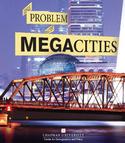Seven in 10 Americans say the country is on the wrong track. Americans are unhappy, worried and pessimistic, and their spending is down according to a University of Michigan report. But the same report shows that consumer sentiment is up. Consumer confidence is up, according to the Conference Board, and our own Consumer Demand Index indicates that spending plans are up. read more »
Economics
Apocalypse Soon? Uneasiness with The Economy
- Login to post comments
Southern California Becoming Less Family-Friendly
The British Talmudic scholar Abraham Cohen noted that, throughout history, children were thought of as “a precious loan from God to be guarded with loving and fateful care.” Yet, increasingly and, particularly, here in Southern California, we are rejecting this loan, and abandoning our role as parents. read more »
Class Issues, Not Race, Will Likely Seal the Next Election
Recent events in Ferguson, Missouri and along the U.S.-Mexico border may seem to suggest that race has returned as the signature issue in American politics. We can see this already in the pages of mainstream media, with increased calls for reparations for African-Americans, and expanded amnesties for the undocumented. read more »
America's Fastest-Growing Small Cities
Coverage of America’s changing urban scene tends to focus heavily on large metropolitan areas and the “megaregions” now often said to dominate the economic future. Often missed has been a slow, but inexorable, shift of migration and economic growth to smaller cities, a geography usually ignored or dismissed, with the exception of college towns, as doomed to lag behind by urban boosters. read more »
- Login to post comments
Welcome to the Billion-Man Slum
When our urban pundit class speaks of the future of cities, we are offered glittering images of London, New York, Singapore, or Shanghai. In reality, the future for most of the world’s megacities—places with more than 10 million people—may look more like Dhaka, Mumbai, or Kinshasa: dirty, poverty- and disease-ridden, and environmentally disastrous. read more »
The Problem With Being Global
The globalization of cities and their elites often comes at the expense of many of the people who live there. Forced to compete with foreign capital and immigrant workers, native-born residents of cities from Los Angeles and London to Singapore often feel displaced, becoming strangers in what they thought was their own place. read more »
Beyond Polycentricity: 2000s Job Growth (Continues to) Follow Population
The United States lost jobs between 2000 and 2010, the first loss between census years that has been recorded in the nation's history. The decline was attributable to two economic shocks, the contraction following the 9/11 attacks and the Great Recession, the worst financial crisis since the Great Depression. Yet, even in this moribund job market, employment continued to disperse in the nation's major metropolitan areas. read more »
- Login to post comments
The Problem with Megacities
This is the introduction to a new report from the Center for Demographics and Policy at Chapman University. The report was authored by Joel Kotkin with contributions from Wendell Cox, Ali Modarres, and Aaron M. Renn. Download the full report here (pdf).
No phenomenon more reflects the sheer power and appeal of urbanism than the rise of megacities, which we define as an urban area with more than 10 million residents (defined as areas of continuous urban development). read more »
Integrating Immigrants: Outcomes Not Attitudes Matter
Many modern economies struggle with integrating foreign-born into their labor markets. In particular, low-skilled immigrants from poor countries experience high unemployment and a range of related social problems. Much has been written about the extent of the problem. In many Western European cities, entire communities of migrants are living in social and economic exclusion. The state of poverty is often persists among their children. read more »
- Login to post comments
The World's Most Influential Cities
In the past century, the greatest global cities were generally the largest and centers of the world’s great empires: London, Paris, New York and Tokyo. Today size is not so important: Of the world’s 10 most populous cities, only Tokyo, New York and Beijing are in the top 10 of our ranking of the world’s most important cities. Instead, what matters today is influence. read more »
- Login to post comments






















